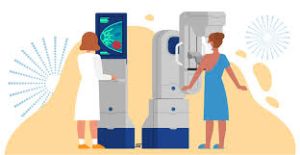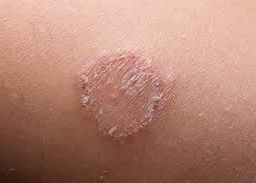
Cancer Myths: Dispelling Common Misconceptions and Facts
Welcome to our comprehensive guide on cancer myths, where we debunk common misconceptions and provide accurate information to enhance your understanding of this complex disease. In this exploration of cancer myths, we aim to dispel confusion, alleviate fears, and empower you with knowledge about the realities of cancer. Let’s unravel the truth together and foster a well-informed perspective on this critical health topic.

Cancer, a complex and multifaceted disease, has long been the subject of numerous myths and misconceptions. These myths can lead to confusion, fear, and misinformation.
1. Myth: Cancer is always a death sentence.
Fact: While a cancer diagnosis can be frightening, it is essential to understand that not all cancers are fatal. Advances in medical research and improved treatment options have significantly increased survival rates for many types of cancer. Early detection, proper treatment, and lifestyle changes can greatly improve outcomes.
2. Myth: Cancer is contagious.
Fact: This misconception can lead to social stigma and isolation for individuals diagnosed with cancer. It is not contagious and cannot be spread from person to person through casual contact or by sharing items. It develops due to genetic mutations or environmental factors and is not caused by interactions with individuals who have the disease. Cancer is caused by genetic mutations that occur within the cells of our own bodies. These mutations can be triggered by a variety of factors, such as exposure to carcinogens or inherited genetic abnormalities. It is crucial to remember that you cannot “catch” cancer from someone else, and it is safe to interact with individuals who have been diagnosed with cancer.

3. Myth: Cancer is caused solely by genetics.
Fact: While some cancers have a hereditary component, the majority are caused by a combination of factors, including lifestyle choices, environmental exposures, and genetic mutations. Adopting a healthy lifestyle, such as avoiding tobacco use, maintaining a balanced diet, and exercising regularly, can significantly reduce the risk of developing certain cancers.
4. Myth: Superfoods can cure cancer.
Fact: While a nutritious diet is important for overall health and cancer prevention, there is no single food or superfood that can cure this disease. It’s important to remember that cancer treatment requires a comprehensive approach, including medical interventions such as surgery, chemotherapy, radiation therapy, and targeted therapies.
5. Myth: Alternative therapies can replace conventional cancer treatment.
Fact: Alternative therapies, such as herbal remedies or alternative medicine practices, should not replace conventional cancer treatment. While some complementary therapies may provide supportive benefits, it is crucial to consult with medical professionals and follow evidence-based treatment plans for the best chance of successful outcomes. Many individuals turn to alternative or complementary therapies in their search for a cure for cancer. While some of these therapies may provide comfort or support alongside conventional medical treatments, it is important to be cautious and well-informed. Alternative treatments, such as herbal remedies or energy healing, have not been scientifically proven to cure cancer. Relying solely on alternative treatments without medical supervision can be dangerous and may delay or prevent the use of evidence-based treatments that have been proven effective in fighting cancer.

6. Myth: Only women can get breast cancer.
Fact: Although breast cancer is more common in women, men can also develop the disease. While the incidence is lower in men, it’s important for both genders to be aware of potential symptoms and undergo regular screenings, especially if they have a family history of breast cancer.
7. Myth: Cancer is caused by cell phone use or deodorants.
Fact: There is no conclusive scientific evidence linking cell phone use or deodorant usage to an increased risk of cancer. Extensive research has been conducted, and current studies suggest that there is no significant association between these factors and cancer development.
8. Myth: Only older individuals can get cancer.
Fact: While the risk of developing cancer increases with age, cancer can affect individuals of all ages, including children and young adults. It is important for people of all age groups to be aware of potential cancer symptoms, maintain a healthy lifestyle, and undergo recommended screenings based on their risk factors.

9. Myth: Mammograms can cause breast cancer.
Fact: Mammograms, which are X-ray images of the breast used for breast cancer screening, involve a very low level of radiation. The benefits of regular mammograms in detecting breast cancer early far outweigh the potential risks associated with radiation exposure. The American Cancer Society and other reputable organizations recommend regular mammograms for women based on their age and risk factors.
10. Myth: Cancer is always painful.
Fact: While cancer can cause pain, not all cancer cases are associated with pain. The presence or absence of pain depends on various factors, including the type and stage of cancer. It’s important to note that early detection and timely treatment can often minimize or alleviate cancer-related pain.
11. Myth: Having a positive attitude can cure cancer.
Fact: While maintaining a positive attitude and mental well-being can be beneficial for overall health and coping with cancer, it is not a cure for the disease. Cancer treatment requires medical interventions and evidence-based therapies. Emotional support, counseling, and a positive mindset can complement medical care but should not be viewed as standalone treatments.
12. Myth: Cutting sugar from the diet can starve cancer cells.
Fact: While it is important to maintain a balanced diet and limit excessive sugar consumption for overall health, there is no evidence to support the claim that cutting sugar alone can starve cancer cells. Cancer cells have complex metabolic processes, and their growth is not solely dependent on sugar intake. It is crucial to focus on a well-rounded, nutrient-rich diet and follow the advice of healthcare professionals.
13. Myth: Sugar Causes Cancer. Another common myth surrounding cancer is the belief that consuming sugar directly causes cancer or fuels its growth. Fact: While it is true that cancer cells rely on glucose (sugar) for energy, there is no evidence to suggest that consuming sugar directly leads to the development of cancer. The body’s metabolism is a complex process, and sugar from various sources is broken down and utilized by different organs and tissues. It is important to maintain a balanced diet that includes moderate amounts of sugar, as excessive sugar consumption can contribute to obesity and other health issues. However, it is crucial to understand that sugar alone does not cause cancer.

14. Myth: Only Smokers Get Lung Cancer Lung cancer is often associated with smoking, and while it is true that smoking is a significant risk factor for developing lung cancer, it is not the only cause. Fact: Non-smokers can also develop lung cancer due to exposure to secondhand smoke, radon gas, asbestos, or other environmental factors. Additionally, genetic factors can play a role in the development of lung cancer. It is important to remember that anyone, regardless of their smoking history, can be at risk for lung cancer. Regular screenings and early detection are crucial for improving outcomes in both smokers and non-smokers.
By dispelling common medical myths surrounding cancer, we can promote accurate knowledge and encourage informed decision-making. It is vital to rely on evidence-based information, consult healthcare professionals, and follow recommended cancer prevention guidelines and screening protocols. Together, let’s strive to enhance our understanding of cancer, raise awareness, and support those affected by the disease with accurate information and empathy.
Disclaimer: The information provided in this content is for general informational purposes only. It is not intended as medical or healthcare advice, diagnosis, or treatment. Always seek the advice of a qualified healthcare professional with any questions you may have regarding a medical condition or healthcare decisions.
















